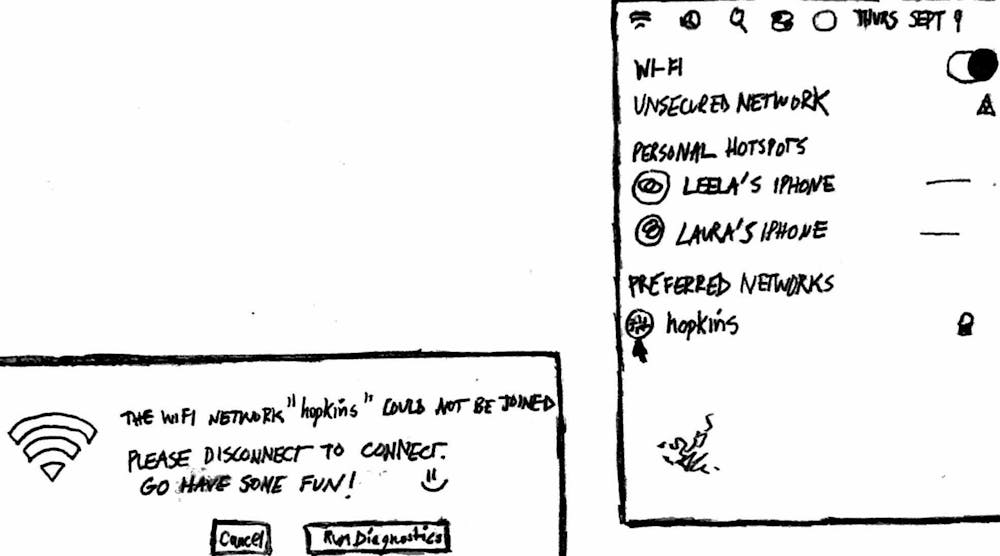After a year and a half of logging onto Zoom meetings, most of us had our first in-person class last week. With students lounging on the Beach, studying at Brody and indulging in the grilled cheese at the FFC, it’s clear: we have achieved some sense of pre-Pandemic normalcy.
Is this a good thing?
Before the pandemic, most Hopkins students concentrated almost exclusively on excelling in their academics and maintaining a rigorous course load, often at the expense of their own mental health. The University itself released data in 2018 in which the majority of students described feeling overwhelmed and depressed at school.
Hopkins is notorious for being a challenging school with demanding courses and overachieving students, but is this reputation sustainable? Do we really want to come back to the campus culture we left in 2020?
Being sent home forced us all to take time for ourselves and reevaluate our priorities. By placing our schoolwork in the context of the pandemic, we focused less on meeting deadlines and achieving 4.0s and more on protecting our communities and ensuring our personal well-being. It took leaving Hopkins to realize the status quo can be challenged.
The adjustment to in-person classes has already created a sense of uncertainty about this semester, and the fact that we have no Fall Break in October has reminded students of the burnout of last spring. We are grateful to Hopkins for the opportunities it provides us, but pulling all-nighters, filling schedules with extracurriculars and flexing over how much caffeine we’ve consumed in the last 48 hours are by no means pillars of wellness. These things are manifestations of the University’s toxic academic culture and should no longer be normalized by students, professors or the administration.
Instead of returning to unhealthy norms, we should look towards creating a new campus culture, one that prioritizes empathy and work-life balance. We must take advantage of this unique moment in time and reset campus culture before we fall back into old habits. If this shift does not take place, it will be nearly impossible for students to take advantage of and thrive at our institution in the years to come.
Students: strive to pop the “Hopkins bubble.” There is so much more to Baltimore beyond Charles Village. Rather than spending all of your free time cooped up in study rooms, take some days off and immerse yourself in the city. Challenge yourself to explore beyond just the Inner Harbor and Hampden—here are some of our recommendations. Begin educating yourself on the history of the city, and find ways to get involved in your community here.
That being said, remember that the pandemic is not over. It is important for students to follow all of the University’s COVID-19 guidelines wherever they go; we have a responsibility to prevent outbreaks from reoccurring on and off campus. The Hopkins community extends beyond just the student body; faculty and staff have lives and families off campus and aren’t put up in the Doubletree if they have to quarantine.
Moreover, our administration must be receptive and committed to this initiative. As we establish our “new normal,” students may occasionally miss class due to illness or need extra time to complete coursework. We call on University leaders and faculty to continue showing the same empathy and understanding they did throughout the pandemic.
Sure, free ice cream and emotional support dogs may help students blow off some steam, but these actions do not facilitate long-term change. It’s on all of us to participate in this cultural shift. We must work together to dismantle our toxic work culture.





